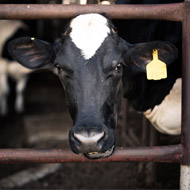Vets urge government to act swiftly on animal sentience law

The BVA is urging the Government to reflect and refine the existing draft bill.
The British Veterinary Association (BVA) is urging the government to enshrine animal sentience in law before Britain leaves the EU.
The plea comes as Defra publishes its response to the Efra Committee’s Pre-Legislative Scrutiny of the draft Animal Welfare Bill 2017.
Efra’s report appealed for revisions to the Bill and suggested that Clause 1, which covers animal sentience, should be abolished and superseded by a new Animal Sentience Bill. In its response, Defra said that it is 'actively looking at drafting solutions which will directly address the Committee's concerns and improve clarity'.
“Rather than entirely going back to the drawing board, we would urge the Government to reflect on and refine the existing draft bill so that it can address concerns raised by the Committee’s report,” said BVA president John Fishwick. “Making wholesale revisions at this stage or making a start on additional legislation would leave this crucial Bill at the mercy of the tight legislative timetable and run the risk of missing the boat on embedding the principles by March 2019.”
He continued: “Our members’ strength of feeling on this issue was made resoundingly clear when over 1,000 vets signed an open letter in support of enshrining the concept of animal sentience in law pre-Brexit. The Government must act swiftly to ensure that the opportunity isn’t missed to uphold the UK’s global reputation for animal welfare.”
The draft Bill was introduced in response to the campaign for Article 13 of the Lisbon Treaty to be included in the EU (Withdrawal) Bill. This would recognise the sentience of animals and impose a duty on the state to consider animal welfare when developing and implementing policy.



 The latest
The latest